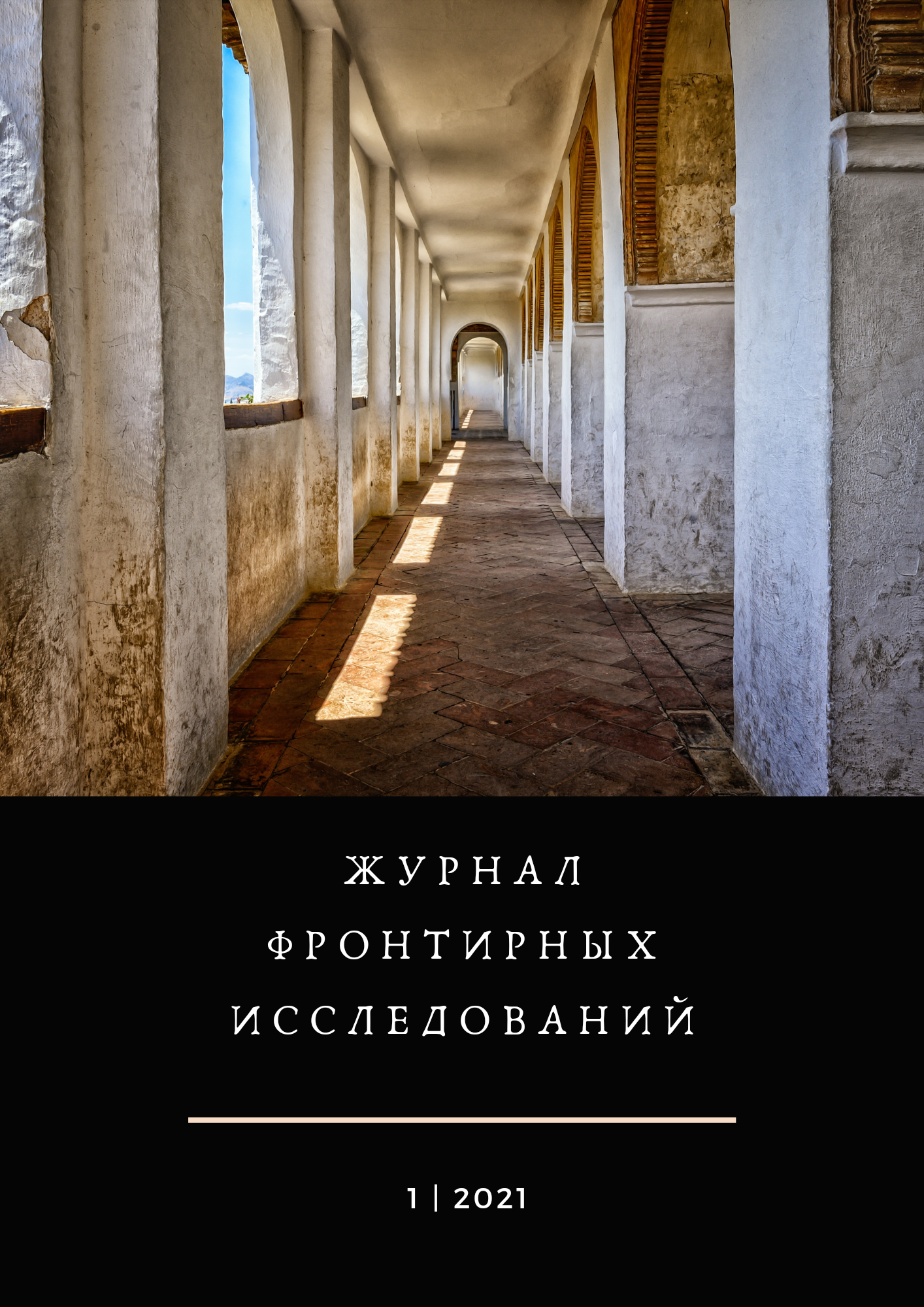Abstract
Evaluation of the emotional states of different ethnic groups is important for their images in the popular ethnographic prose of the 19th – 20th centuries. Reduced emotions are triggers for ethnos' "invisibility", emotional outbursts may be qualified as "savagery". Thus the problem of "right feelings" has become one of the most important topics for the ethnographers and researchers. The purpose of this study is to determine which emotional states in other communities are attractive or unacceptable for ethnographers. Our study is based on the book of essays written by K. Nosilov (1858–1923), an Ural traveler and ethnographer. “The Voguls” (1904) is written in the non-fictional style and describes the life, nature and emotions of northern peoples. In Nosilov’s texts the Voguls (Mansi) are sensitive, quiet, open for communication with spirits. Although we can reveal some positions of colonialist discourse in Nosilov’s essays, he actively builds a personal relationship with Voguls, trying to dive as deep as possible into their culture. The crucial point in the process is his participation in the sacrifice when the writer turns to affect (fear, terror, disgust), caused by the sight of a new image of his familiar hunters. Thus, the strong emotional component becomes an obstacle to acceptance of other cultures. However, a researcher can recreate the holistic view of the ethnic group only if he becomes a witness to ecstatic states, not just daily life. Nosilov found the emotional balance and paints a picture of the transformation of the cathartic emotions during a vogul theatrical performance.
References
Bhabha, H. K. (1994). The Location of Culture. London, New-York: Routledge.
Boddice, R. (2018). The history of emotions. Manchester: Manchester University Press.
Dorogov, D. A. (2017). Beyond Antagonism: Hybrid as a Model of Post-Colonial Queer Subjectivity. Journal of Sociology and Social Anthropology, 20 (5), 39–58. (In Russian).
Foucault, M. (2006). Other spaces. In В. P. Bolshakov (Ed.) & B. M. Skuratov (Trans.), ntellectuals and power Selected political articles, speeches and interviews (pp. 191–204; M. Foucault). Moskow: Praxis. (In Russian).
Gramatchikova, N. B. (2015). Finno-Ugric Population of the North of Russia: the view of a Russian ethnographer (based on the essays by S. V. Maksimov "A Year in the North"). Bulletin of the Ural Federal University. Ser. 2, Humanities (3), 69–82. (In Russian).
Gramatchikova, N. B. (2020). K. D. Nosilov. In History of Literature of the Urals. XIX century: in 2 books. (Book 2, pp. 1072–1104).Moskow: Publishing House YASK. (In Russian).
Local News. (1847). Orenburg Provincial Gazette (38). (In Russian).
Maksimov, S. V. (1859). Selected works: in 2 vol. St. Petersburg. (In Russian).
Nicolai, F. (2019). A History of Emotions: Three Versions. New Literary Review (2), 289–297. (In Russian).
Nosilov, K. D. (2015). The Voguls: Essays and sketches . Moskow: URSS. (In Russian).
Okhapkin, Y. D. (2012). Trans-Ural wanderer: materials for the biography of K. D. Nosilov. Yekaterinburg: Bank of cultural information. (In Russian).
Omelchuk, A. K. (1989). K. Nosilov. Sverdlovsk: Central Ural Book Publishing House. (In Russian).
Plumper, J. (2018). History of emotions. (K. Levinson, Trans.). Moscow: New Literary Review. (In Russian).
Rosenwein, B. H., & Cristiani, R. (2018). What is the history of emotions? Cambridge: Polity.
Sozina, E. K. (2010). Ethnographic-colonial subtext as part of the Siberian text: based on the works of K. Nosilov and P. Infantyev. In Siberian text in the national plot space (pp. 108–132). Krasnoyarsk: Publishing house of Siberian Federal University. (In Russian).
Sozina, E. K. (2014). “A whole new world for me”: ethnographic fiction by K. D. Nosilov in Russian literature at the turn of the 19–20 centuries. Quaestio Rossica (2), 193–211. doi: 10.15826/qr.2014.2.050 (In Russian).
Yakushenkov, S. N. (2017a). Heterotopy of the Border, or Should the Border Be Locked Up? Caspian region: politics, economy, culture, (4), 171-178
Yakushenkov, S. N. (2017b). Alien spaces: new forms of heterotopias of the modern city. Historical, philosophical, political and legal sciences, cultural studies and art criticism. Issues of theory and practice, (12-2), 214-217.
Yakushenkov, S. N., & Yakushenkova, O. S. (2014). Transgression in heterotopic frontier spaces. Caspian region: politics, economy, culture, (3), 276-284.
Yakushenkova, O. S. (2015a). Religious transgression in the conditions of heterotopia. Polythematic Network Electronic Scientific Journal of the Kuban State Agrarian University, (113), 219-229.
Yakushenkova, O. S. (2015b). Female transgression in the heterotopic spaces of the frontier. Caspian region: politics, economy, culture, (3), 321-326.
Z-f-r-v. [Zefirov], V. (1852). Udryak-bash, or August 22 in the Meshcheryak canton. Orenburg Provincial Gazette (32). (In Russian).
Zadorin, I. & Nemirovskaya, A. (2017). Russian frontier: civic identity at the forefront of the country. Global social transformations of the 20 – early 21 centuries, 528–529. St. Petersburg. (In Russian).
Zlobin, S. S. (2014). The concept of hybridity in the work of the Indian cultural scholar Homi Bhabha. Crimean culture and special historical design (9), 199–206. (In Russian).

This work is licensed under a Creative Commons Attribution 4.0 International License.

